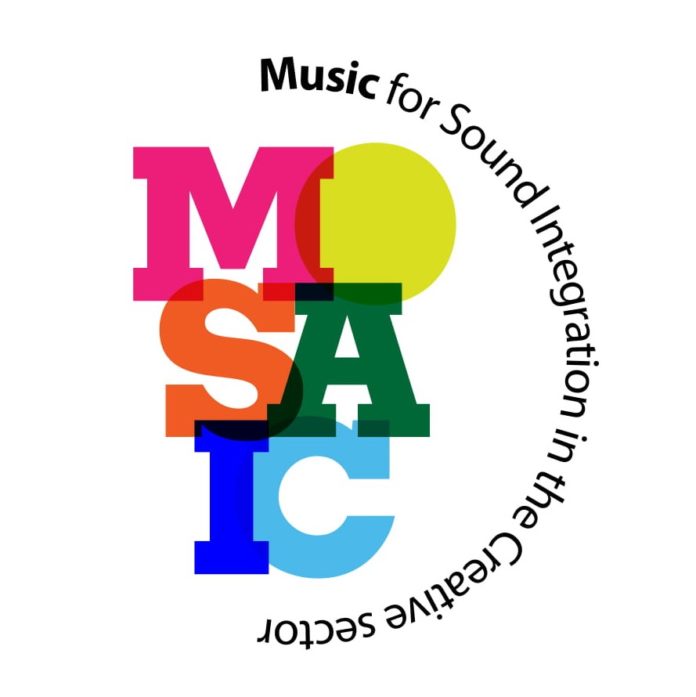MOSAIC
Music for Sound Integration in the Creative sector
Programme and call
Creative Europe, CULTURE Sub-programme, Cultural cooperation projects – Call 2018
Active project
Short description
The MoSaIC project is aimed at the fields of music and intangible cultural heritage, as it aims to involve young immigrants and European citizens, both professional and amateur musicians, in a path of mutual knowledge and collaboration, giving immigrants the opportunity to share their musical traditions and skills while exploring, at the same time, various music genres typically European (such as classical music, modern music, pop, jazz, choral music, etc..).
Music will be the vital centre of all the activities of the project, as it will be understood as a tool to allow young immigrants to spread their personal heritage, cultural heritage, as well as their social context of origin, and at the same time introduce them to the history of European music, building a common sense of belonging, through the creation of a mixed group of immigrant musicians and EU citizens and the development of a shared music piece, to be spread in all the partner countries of the project.
In this way, the intangible cultural heritage of young immigrants and the countries of origin of asylum seekers will be enhanced through its dissemination to a wider public and in particular to young students. The exchange of music and tradition between musicians will encourage the fusion of musical genres and the enrichment of intangible cultural heritage in terms of contamination and integration of diversity in an inclusive European musical and cultural scenario.
MoSaIC, involving four partners active in the promotion of music and culture, aims to promote the inclusion of young immigrants, refugees and asylum seekers in the host societies of the EU, through musical cooperation and co-creation.
Objectives
– To promote the artistic/creative expression of immigrant and European musicians and to encourage the participation of immigrants in the creation and diffusion of musical products and events;
– To change the perception of the immigrant in the common mentality of the people, offering to a wide public a different way to know better and reflect on issues such as migration, asylum, discrimination and prejudice against cultural diversity;
– Recognizing music as a universal communication language capable of transcending cultural boundaries;
– Strengthen the capacity and skills of cultural operators, music teachers, art directors to work with immigrants and to cooperate at transnational level;
– To create a new and shared European musical heritage belonging to the old and new European citizens;
– To improve training and teaching methodologies for young musicians in the field of classical and contemporary music.
Actions
The main activities of the project consist of:
– organization of training courses for mixed groups of musicians;
– organisation of concerts and public events at national level;
– workshops in schools, which will introduce students to the importance of music for mutual understanding and fusion of cultures;
– joint residence for artistic directors and musicians, whose final product will be the creation of a shared piece of music to be exhibited at the World Music Festival in Milan (IT);
– public events to attract a very wide audience, especially those formed by disadvantaged and/or under-represented groups.
Results
The main expected results are:
– Improving the capacity of artistic staff, cultural organisations, NGOs to cooperate at European level and increasing the internationalisation of careers;
– Spreading a multicultural approach to music education with the active involvement of mixed groups of immigrants and local people and improving the professional skills of cultural operators involved in music education and integration of immigrants;
– Increased participation of young immigrants in the cultural life of the host societies, greater opportunities for peer exchange, opportunities to express potential, talents and histories and greater knowledge of the EU’s musical heritage, from classical to choral and contemporary music;
– Improved knowledge of the music traditions of lesser-known third countries in Western countries and greater awareness of the importance of music as a tool for integration.
Lead partner
AMADEUS Ensemble
Partnership
The partnership is made up of 4 players from 4 different countries:
– Ensemble AMADEUS – EN
– DSI SWINGING EUROPE- DK
– Fundatia Culturala Sound – RO
– Koor&Stem vzw – BE
Duration
The project has a duration of 27 months (1 October 2018 – 31 December 2020)
Total Budget
The European grant received is €192,456.00 out of a total budget of €320,760.00.
Funding body
European Commission – DG Culture




